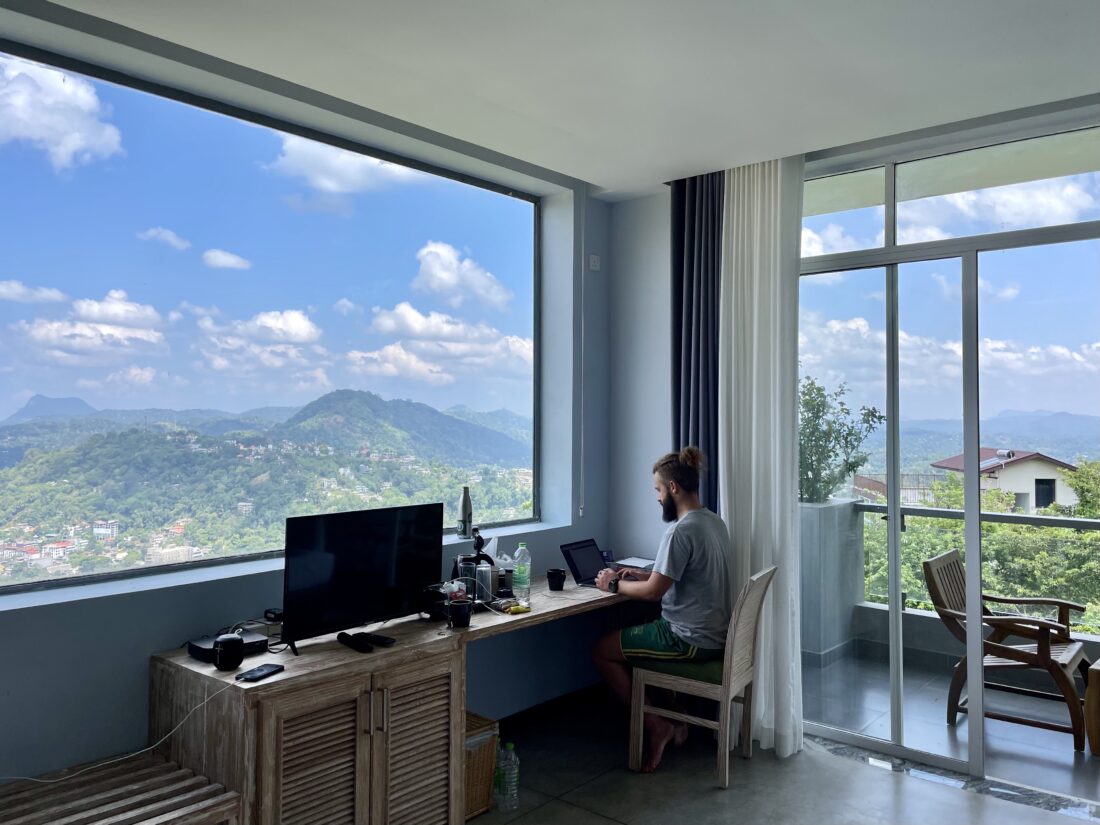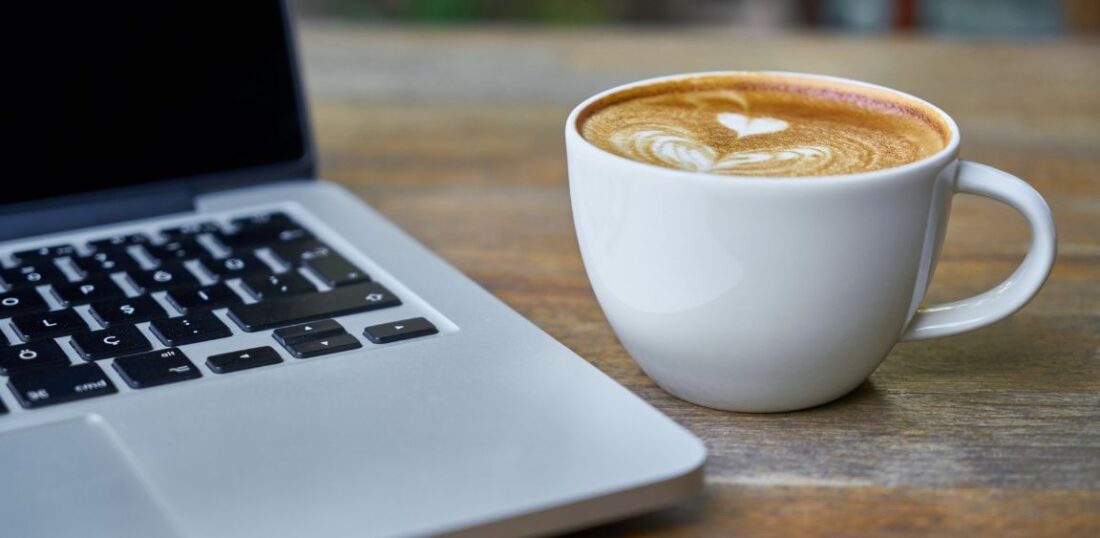
Student travel can be exciting… but when combined with online classes and freelance gigs it quickly turns chaotic. Good time management serves as a student’s compass to stay on course and on target.
In the first few days on the road, learners often discover that free Wi-Fi is not always free and that local attractions steal hours without warning.

Some even rush to order a scholarship essay writing service like SpeedyPaper because deadlines sneak up while they are racing for a train. This guide gives simple, friendly advice on how to manage time, work smarter, and still enjoy every new city.
In this post we’ll cover why it matters for mobile learners, and which time management strategies actually work from a hostel bunk or airport lounge.
By the end, you should feel confident that building time management skills is not about squeezing fun out of travel. It is about planning enough to feel free, relaxed, and ready for the next adventure.
Understanding Time Management While Traveling
People often make the misapprehension that effective time management involves filling every minute with activities; this misconception can prove especially dangerous when traveling for courses or exams. Good time management simply involves making choices which reflect personal values and goals.

Once learners travel abroad, their goals often change quickly. An afternoon might involve quizzing before Wi-Fi connectivity is lost and shopping at night markets; but by evening quizzes could have turned into attending them!
To stay balanced while traveling abroad, travelers should keep track of where time has gone using either a journal or app on their smartphone; over time patterns should emerge with continued journeys.
Keep tabs on time zone differences or evening social events – being aware of these patterns can help students identify when intensive study would be most efficient compared to light tasks; being informed is power!
Before Packing
A successful travel plan involves considering all possible demands on their itinerary – shifts for online jobs and coursework deadlines/webinars as well as team meetings along the route – before packing.
Organization
Students can create an efficient system where each duty can be prioritized according to its importance and urgency.
Using a chart which clearly outlines which require immediate action while others could take up to one week; an urgent midterm exam scheduled on Friday demands immediate consideration while compiling photos for online portfolio may take multiple days.

As an example: collecting photographs could take anywhere between one to five days for consideration by instructors – for instance taking an urgent midterm exam this Friday requires immediate care while gathering photos could take anywhere between five days and one week.
Travelers can avoid overcommitting by keeping commitments within reasonable boundaries and adhering to reasonable commitments. Travel dates should avoid important exams or project launches; sharing plans makes accountability harder – having someone familiar with your plans makes it harder to break from schedule when exploring beaches or museums.
Creating an Adaptable Schedule
Once task requirements have been established, the next step should be creating an adaptable yet firm schedule. Traditional planners tend to succumb to unexpected travel days; students should use anchor events such as lectures or client appointments as the foundation upon which to organize floating tasks so assignments or appointments do not slip by unknowingly.

Electronic calendars offer an effective solution for organizing activities. Red blocks indicate mandatory study periods; blue represents shift work patterns; while green areas serve as personal enjoyment zones.
Setting alarms ten minutes earlier offers both mental and practical advantages; providing train riders comfort on scenic rail journeys while offering students time to prepare if buses arrive late or videos take too long to upload; giving peace of mind should anything unexpected occur.
Finding an appropriate balance of firmness and flexibility ensures learners can meet promises without feeling constrained; creating an efficient routine while leaving time for unexpected strolls at sunset. If plans still seem restrictive, incorporating five minute stretch intervals might keep momentum alive while not depleting energy reserves too rapidly.
Using Digital Tools Efficiently
Student travelers may find digital tools valuable when traveling; however, too many apps could become distracting and reduce time management skills simultaneously. To maximize both simultaneously while decreasing distraction, select a small but robust kit before carefully inspecting its contents.

Task managers such as Trello or Asana enable students to efficiently organize assignments by due date, mark completed projects as completed once completed, track project progress in real-time, move cards as projects advance and stay within scope.
Calendar apps sync between devices so students receive timely reminders even if one temporarily goes offline but later reconnects – providing everything needed for productive studying experiences.
Cloud drives help protect lecture notes from being misplaced in lost backpacks, while browser extensions such as StayFocusd block distracting websites from browsing. Both tools should work seamlessly together: setting a Trello deadline will populate its calendar automatically with dates for you.
Students should set aside five minutes at the end of every day to assess tasks completed and prepare for tomorrow.
Doing this helps reduce alert accumulation; travelers using digital assistants such as Siri or Google Assistant as reminders can use voice control assistants such as these as quick prompts without carrying their luggage through busy terminals.
Prioritize for Stress Relief
Even the best digital planner can become overwhelmed quickly when dealing with multiple urgent tasks at the same time, leading to anxiety-inducing overload of items on an already over-stuffed list.

By setting priorities clearly on an overloaded task list and prioritizing items effectively, prioritization serves as the gateway towards relieving tension.
Travelers can utilize the Eisenhower Matrix to organize tasks into four distinct categories: immediate; urgent but unimportant; important but not urgent and neither.
Items belonging to categories 1-4 require immediate action while any falling between 2-3 may even be deleted outright.
Honest sorting helps students develop effective time management abilities by helping them identify which projects need priority and when.
Photo editing may appear urgent at first, but when combined with writing a research proposal worth half your course grade it becomes far simpler to manage. Visualizing priorities as lock-screen images helps ensure they remain at the top of mind.
An effective morning routine entails selecting three key tasks every morning that help make each day less daunting.
Think visual cues like colored markers or stars/emoji markers offer visual guidance when your focus may wander off track on hectic travel days.
These visual reminders motivate as each task gets completed while stress levels decline and more time opens up for fun activities!
With each completed task comes increased motivation while stress declines allowing more free time available for fun activities!
Creating Productive Study Zones
Your environment plays a pivotal role in shaping focus; an engaging hostel common room might offer plenty of chances to socialize but may provide less-than-ideal conditions for intensive reading.

Students living in accommodation should make use of spaces such as balconies, library rooms and staircases with small tables equipped to help them focus.
Setting an environment conducive to quickly transitioning from work mode into mind will enable your mind to make the switch between daily routines more quickly; returning at an appointed time may speed up this transition process and facilitate transition more swiftly; regularity helps speed this process along.
Noise-cancelling headphones can transform even the noisiest cafe into an intimate library; lightweight travel blankets give individuals control of their personal space by delineating individual zones of protection and personal space.
Lighting plays a pivotal role in making study sessions go more smoothly; natural sunlight provides energy boosts while clip lamps may come in handy on late night bus journeys. A portable laptop stand will elevate your screen while relieving neck strain during long study sessions.
Establishing effective study habits requires developing effective study techniques; candle scent can be particularly effective at increasing student concentration while folding privacy screens can add an extra level of security in shared study environments.
Teachers can assist their pupils better manage time by creating structured environments in which their students study; by setting aside dedicated zones as study zones, teachers can help their pupils avoid wasteful efforts fending off distractions; over time this zone becomes an implicit mental reminder that it’s time for serious work and exploration!
Balancing Work, Study, and Exploration
Travel can be full of distractions: neon-lit streets, mountain hikes and delectable cuisine… But the experience doesn’t need to fade when work and study take priority over exploring; finding balance is key!

Students could gain from adopting the “three-part day” concept: one block can be dedicated each to academic tasks, paid work and exploring nearby sites.
Dependent upon one’s energy cycle, different people approach setting boundaries within blocks in various ways; early birds might study before dawn before heading into work for the day and exploring after dark; night owls might prefer taking different approaches altogether; setting clear parameters within each block helps maintain focus and maintain focus.
Work hours should not be used for binge watching travel vlogs or accepting tour invitations in order to protect exploration time from being compromised by work-related information. Laptops should remain closed so as to facilitate more mindful experience of new sights.
At least once every week, travelers should set aside one “Buffer Day,” to finish any uncompleted business without impacting sightseeing plans.
By assigning each activity its own space and labelling activities accordingly, travelers can avoid performing multiple activities simultaneously; this approach enhances both output and enjoyment while traveling.
Dealing with Connectivity Issues
Unreliable signals and connectivity problems are one of the greatest impediments to productivity on the road; even at cafes boasting fast internet, six backpackers simultaneously streaming films can quickly overwhelm its bandwidth, rendering its services inadequate and undermining productivity.

Students traveling must develop two travel plans when travelling; preventive and backup. Preventative measures might include researching coverage maps before making reservations and reading reviews that address Wi-Fi quality issues.
As your signal weakens, switch to offline tools such as lecture videos downloaded directly onto local copies of assignments to maintain steady progress.
Prepare yourself by keeping mobile hotspots, spare SIM cards and the means to tether through friends’ phones as backup plans if your work cannot continue uninterrupted.
An extra power bank provides additional protection to mobile routers during extended bus rides through rural areas, providing extra defense from both digital and physical distractions alike.
Website blocks or signs displaying “Do Not Disturb – Exam in Progress” on hostel bunks may help restrict social media use during study blocks; reward systems like giving five-minute breaks every 30 focused minutes can combat internal distractions while keeping students on task; finally, self care must not be neglected! Time management strategies cannot overlook self care as an integral component!
Self-Care as a Core Strategy
As healthy bodies and minds contribute to producing higher-quality work, travel often tempts students away from adopting healthier lifestyle choices in favor of fast food with few breaks for rest stops and instant noodles as sustenance.

Self-care shouldn’t be seen as self-indulgence but as part of an effective time management strategy. Sleep deprivation costs travelers both in terms of lost productivity due to fatigue reducing typing speed and cognitive capabilities, as well as decreased typing speed due to reduced typing speed.
Travelers should establish clear rules: at least seven hours of restful sleep each night; eating one nutritious, vegetable-rich meal daily; and scheduling at least 30 minutes for exercise/walking activities as soon as possible.
Hostels often provide free yoga sessions while city parks welcome runners.Hydration apps provide a key solution for combatting fatigue by sending gentle reminders to consume enough fluid in order to combat feelings of fogginess that impede concentration and impair focus.
Prioritize both mental and physical wellbeing equally. Simple techniques, like making a list of five things you see or hear each day, can provide instantaneous relief from stressful moments.
Regular self-check-ins can help students prevent burnout and stay on track towards reaching their goals; apps like Headspace can support this effort with three-minute breathing exercises between train transfers.
Prioritizing wellness can enable students to make wiser time management choices on the fly and maximize their usable campus time.
Regular Reviews and Adjustments
Plans often change over time: trains, weather conditions and museum opening hours often throw us curve balls; therefore it is wise to review and modify plans on an ongoing basis to remain on course with life and your goals.

Setting aside time each week to review plans can help prevent students and employees from falling off track or diverging, while students could take this time to reflect upon tasks which took longer than planned and celebrate smaller victories.
Adjust their schedule as necessary – perhaps one of their project meetings was moved to Tuesday instead, or tasks may need to be adjusted in order to allow time on Friday evening for an event – teaching flexibility as an essential skill of effective time management strategies.
Keep reviews brief – insight is more valued here than perfection. An effective reflection tool might include writing down three questions such as, Have I accomplished what was planned, Why have my plans not materialized, and Which plans am I exploring next.
Students could utilize voice notes while walking as an effective physical workout and to generate new ideas. Reflection may also foster beneficial habits which align goals with reality; through long-term time management practices students could then achieve optimal time efficiency practices.
Long-Term Time Management Habits
Time management practices that create long-term success should not just be established on one trip alone.
Students should carefully document online any noteworthy discoveries like apps they rely on most often, effective morning routines or noise-blocking playlists in an easily accessible time playbook for future travels. That way, their favourite discoveries can easily be referenced later when required on future adventures.

Secondary students typically share resources among themselves. Teaching time management to enhance understanding, and setting ambitious stretch goals such as taking an online certification course while backpacking may stretch their abilities even further than before.
Acceptance is vital in maintaining high morale; missed deadlines shouldn’t be seen as failures but as opportunities to deepen our learnings and make adjustments where needed.
Reviewing playbooks after each trip can significantly transform practice; eventually, these cycles of action and reflection lead to professionals with unparalleled expertise at libraries or bustling street markets.
Please visit:
Our Sponsor
